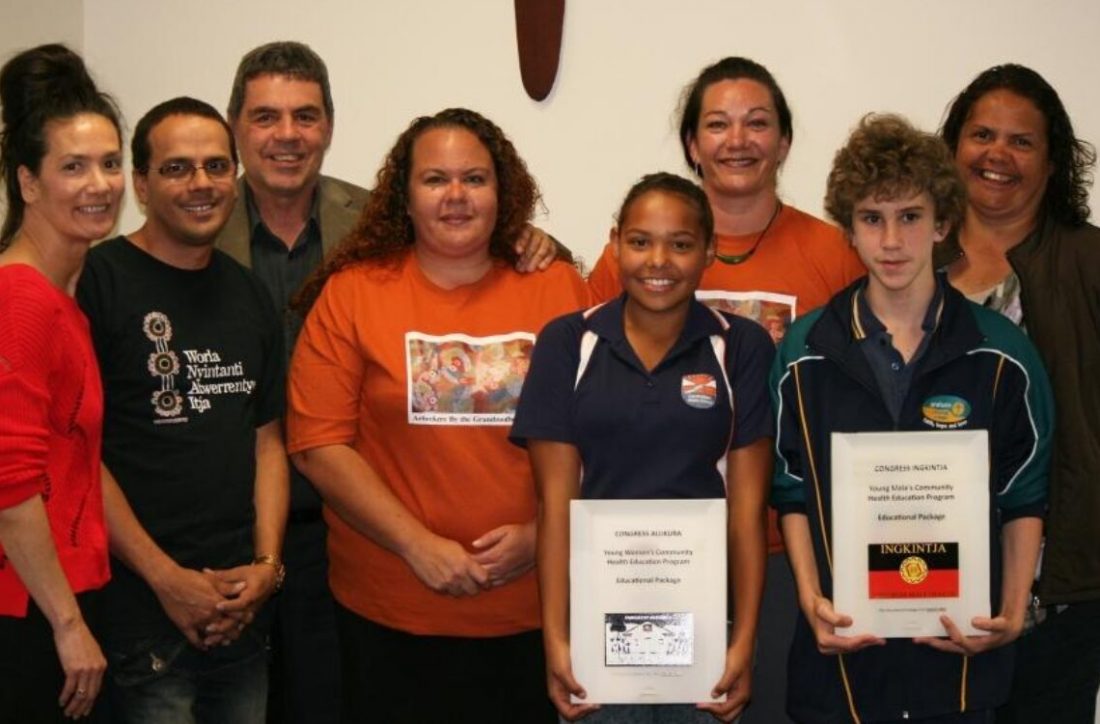A new Indigenous youth sexual health education resource package was launched today in Alice Springs.
The package is part of the Central Australian Aboriginal Congress’ Community Health Education Program (‘CCHEP’). The CCHEP Program has been delivering holistic sexual health education to young Indigenous women living in and around Central Australia since 1998 and to young males since 2011.
CCHEP coordinator Donna Lemon says that the program has provided an insight into the way that sex education has changed.
“The CCHEP program provides awareness and basic holistic sexual health education to young people in our local schools,” Ms Lemon explained. “We also run educator training four times a year to enable community-based workers, such as Aboriginal health practitioners and teachers, to confidently deliver the program to their own target groups.”
As well as local schools, the program has been delivered to organisations such as Owen Springs Detention Centre, CAAAPU, Mission Australia, Tangentyere Council and the Midnight Basketball program.
Education is provided to young people through a series of learning activities in a way that is fun and interactive, so that the learning experience is memorable.
Congress CEO Donna Ah Chee said that the manuals will provide teachers with confidence to deliver health education, as part of a holistic approach.
“The new manuals will help ensure that teachers and other educators are really well prepared and confident in their ability to educate young people in areas that many find difficult and challenging.
“Congress fully understands that the task of supporting young people to develop in healthy ways and adopt a healthy lifestyle is complex and requires a multifaceted approach,” Ms Ah Chee commented.
“Healthy lifestyle education at age 12 and beyond is one part of this approach. However it’s also important to recognise the critical importance of the early years in the healthy development of young people as well.
“We know that the development of self-regulation and self-control by age four is crucial to the subsequent development of an active healthy lifestyle.
“We also know that interventions in early childhood that support responsive parenting and child stimulation can have a big difference on the subsequent development of a healthy lifestyle including fewer addictions, fewer sexual partners with safer sex and higher levels of physical activity.
“The resource that we are here to launch today is part of this overall, multifaceted approach.”
Recognition was given to the elders—including the Alukura women’s health Grandmothers and Aunties—who have provided input and cultural knowledge into the development of this and other health education resources throughout the years. Acknowledgment was also given to the Office for Aboriginal and Torres Strait Islander Health (OATSIH), the Northern Territory Sexual Health Program and the NT Sexual Health Advisory Group, all of which have provided support in the development and implementation of the resources.
Media Contact: Emma Ringer, Communications Officer Ph: 08 8958 3664
